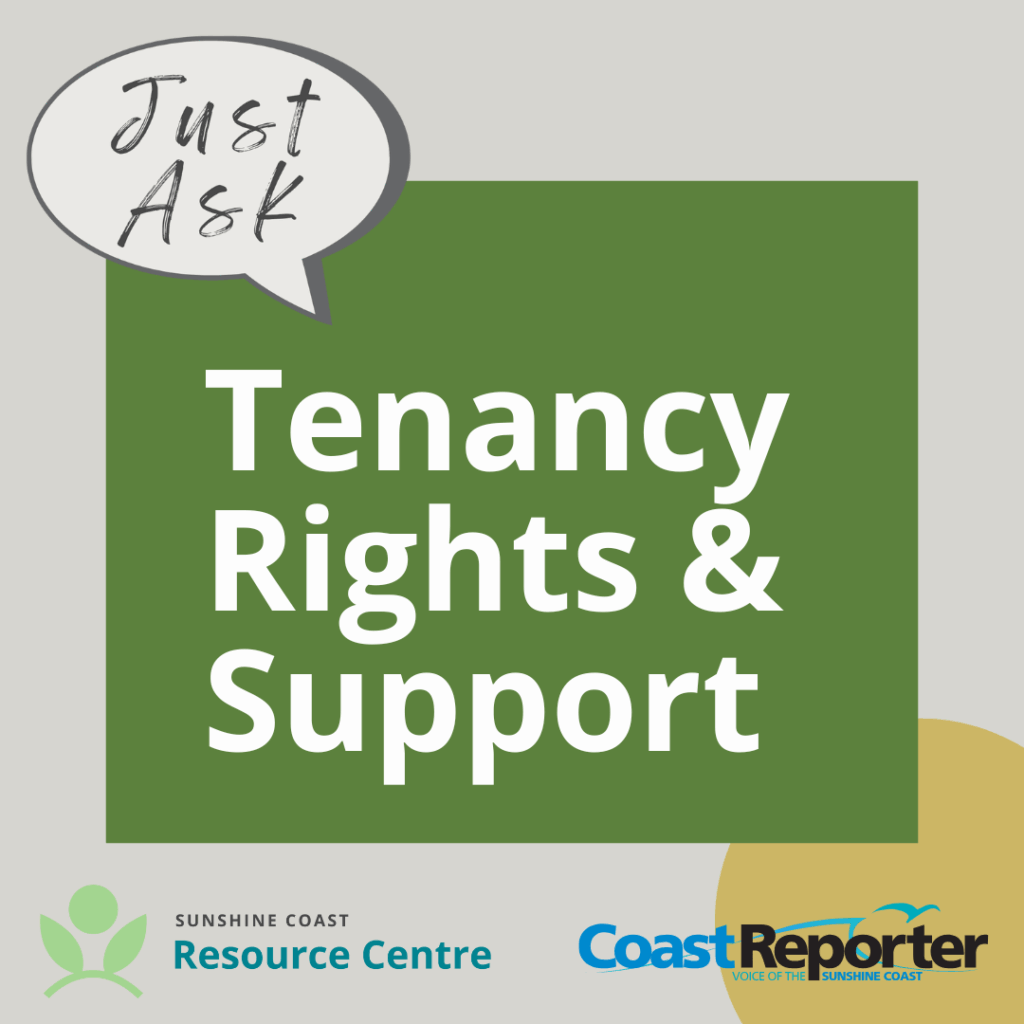Just Ask: What Are My Rights as a Tenant on the Sunshine Coast, and Where Can I Find Help?
Hayley Toth | Sunshine Coast Resource Centre
Finding affordable rental housing on the Sunshine Coast is hard enough, and receiving an eviction notice can make the situation even more stressful. Many tenants are unsure of their rights and may feel pressured to leave right away. But under British Columbia’s Residential Tenancy Act (RTA), renters and landlords are protected. There are clear rules about when a landlord can end a tenancy, and there are supports on the Coast to help tenants navigate the process.
Evictions must be issued on an official Residential Tenancy Branch (RTB) form and for a legally valid reason. The type of notice a tenant receives depends on the circumstances. Please note, all timelines listed below are calendar days, not business days.
- 10-Day Notice – for unpaid rent or utilities. Tenants have five days to pay or file a dispute.
- 1-Month Notice – for cause, such as repeated late rent, property damage, or disturbing other tenants. Tenants have ten days to dispute.
- 3-Month Notice – if a new owner or landlord intends to move in themselves or a close family member. Tenants have 21 days to dispute and may be entitled to one month’s rent as compensation.
- 4-Month Notice – for major renovations, demolition, or conversion. Landlords must have permits in place and tenants are entitled to one month’s rent as compensation. Tenants have 30 days to dispute and may be entitled to one month’s rent as compensation.
If a landlord gives notice improperly or for false reasons, tenants may be entitled to compensation of up to 12 months’ rent. Importantly, this also applies even if the landlord had a valid reason available but did not follow through with what they stated in the notice. For example, if a landlord says they are moving in but later decides to move their mother in instead, they could still owe compensation since it was not the reason originally given for the eviction. Cosmetic renovations or vague claims about future plans are not enough to justify ending a tenancy.
The most important thing for renters to remember is that they do not have to leave immediately. Tenants have the right to dispute an eviction notice with the RTB, and strict deadlines are in place to ensure their case is heard. Keeping good records — including copies of notices, emails, and any conversations — can make a difference if the matter goes before an arbitrator.
Fortunately, there is help available locally. The Sunshine Coast Resource Centre in Sechelt runs a free Legal Advocacy Program that supports tenants with paperwork, disputes, and even representation at hearings. To get in touch with our Community Legal Advocate, call 604.989.5571 or email advocate@resourcecentre.ca. You can also come by the Resource Centre at 5674 Cowrie Street during our office hours, Monday – Thursday from 10am-2pm.
Beyond the Coast, the Tenant Resource & Advisory Centre (TRAC) operates a province-wide hotline (1-800-665-1185) and offers excellent guides on tenant rights at tenants.bc.ca. Access Pro Bono’s Residential Tenancy Program also provides free legal advice and representation for low-income tenants facing RTB hearings, and they can be contacted at tenancylaw@accessprobono.ca. For those who qualify, Legal Aid BC offers further support (legalaid.bc.ca), while the Community Legal Assistance Society (CLAS) may be able to help tenants who have already lost a hearing and are at risk of eviction (clasbc.net).
A full directory of tenant resources is available on the Resource Centre website (resourcecentre.ca), under our Resource Directory. Tenants have rights, including the right to dispute, the right to compensation in certain cases, and the right to be treated fairly under the law. Most importantly, you don’t have to face it alone — there are local and provincial resources ready to help.

